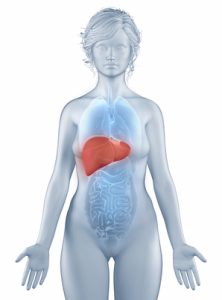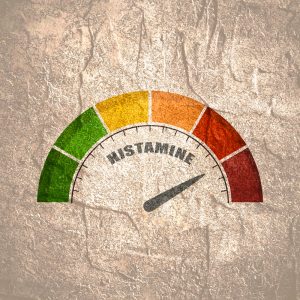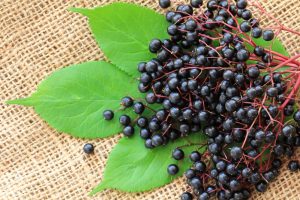If you’ve ever stubbed your toe or suffered a minor paper cut, then you’re familiar with the effects of inflammation. The heat, redness, and swelling you experienced following that minor injury was the result of acute inflammation, which is part of your immune system’s natural response to trauma.
But there’s another kind of inflammation with which you may not be aware. Unlike acute inflammation, which usually involves pain and is short lived, chronic inflammation can be a “silent fire” and last for weeks or even years.
In fact, most people don’t even realize they’re “on fire” until they’re diagnosed with a serious disease. This may be why chronic inflammation has been identified as a factor in such diverse disorders as autoimmune diseases, such as inflammatory bowel disease and rheumatoid arthritis, Alzheimer’s disease, type II Diabetes and cardiovascular disease.
So, what is chronic inflammation? And more importantly, what can you do if you are suffering from it?
The Connection Between Inflammation and Your Immune System
Inflammation is an integral part of your body’s natural defenses. When threatened by harmful substances, such as a bacteria or viruses, your immune system sends wave after wave of white blood cells and chemicals to seek and destroy the offending organisms. This “inflammatory cascade” produces the heat, redness, and swelling which characterize acute inflammation. Once the offenders are destroyed the inflammatory cascade stops and healing begins.
During chronic inflammation, however, the inflammatory response is continual. Any number of factors can cause chronic inflammation.
Hereditary and environmental factors. Both may have a causal effect on autoimmune disease, such as inflammatory bowel disease or rheumatoid arthritis. In an autoimmune disease, your immune system mistakes its own tissues as “foreign,” unleashing the inflammatory response.
Typical Western lifestyle. Diets rich in sugars, fats, and food additives, as well as a sedentary lifestyle, may promote the production of inflammatory chemicals.
The “Fire” in Your Belly
Most people aren’t aware of the major role our gastrointestinal (GI) tract plays in our immune health. Besides digestion, our GI tract is home to nearly seventy percent of our immune system. It is a major source of lymphocytes, a type of white blood cell that plays a large role in defending the body against disease, and mast cells, which release histamines and other chemicals as part of an allergic response.
Calming the Flames—A Natural Approach
As home base for the majority of your immune system, your GI tract plays a vital role in your inflammatory response. By paying attention to your gut, you can minimize the effects of inflammation naturally. The following natural approaches can help:
Omega Essential Fatty Acids such as EPA and DHA may help decrease your risk of cardiovascular disease and support a healthy immune response. Although the best sources of omega-3 fatty acids are oily fish such as salmon, mackerel, and sardines, non-fish food options include flaxseed, flaxseed oil, and walnuts.
Ginger and rosemary have been shown to support the healthy metabolism of inflammatory chemicals.
Turmeric extract inhibits the activities of a wide range of enzymes implicated in pain and inflammation.
Rice protein has been shown to have a lower allergy potential than other protein sources, making it a safer alternative.
You can also minimize chronic inflammation by eating a healthier diet (including more vegetables and nutrient-dense superfoods) and getting regular, moderate exercise. Both will reduce the amount of fat in your body, which research suggests may incite the inflammatory response.
By Cindy Clayton-Sudalnik, D.C.
The Most Powerful Natural Antioxidant You May Never Have Heard Of
Antioxidants can play an important role in reducing inflammation in the body. Antioxidants help to counteract oxidative stress. They neutralize excess free radicals to protect cells, prevent illness, and reduce inflammation.
The most powerful natural antioxidant discovered to date is Hydroxytyrosol.
Hydroxytyrosol has an ORAC value (Oxygen Radical Absorbance Capacity – its ability to absorb cell damaging free radicals) of 68,576 – which is considered to be 15 times higher than green tea and 3 times greater than CoQ10. It is recognized by scientists, because of numerous, well documented studies, for its powerful anti-inflammatory and antioxidant effectiveness.
Hydroxytyrosol has the highest level of free radical absorption ever reported for a natural antioxidant. It has some very special characteristics that contribute to its effectiveness. It is:
* Rapidly absorbed into the bloodstream and tissues where it can perform its free radical scavenging duties
* The only phenol (organic compound) that is able to cross the blood-brain barrier, which allows it to absorb free radicals throughout the central nervous system
* Both fat and water soluble, giving it the highest bioavailability of any antioxidant.
The Science Behind Hydroxytyrosol
In numerous human, animal and in vitro (test tube) studies, Hydroxytyrosol has been shown to:
* Reduce markers/indicators of inflammation
* Support healthy mitochondrial function and significantly increase ATP (a molecule that carries energy within cells) energy production
* Promote significant and rapid reduction of LDL (bad cholesterol)
* Boost eye health and reduce risk of macular degeneration
* Have a therapeutic effect on the heart and cardiovascular system.
What is Inflammation?
 Recent studies have shed light on the remarkable health benefits of camel milk, particularly its impact on gut health and inflammation..
Recent studies have shed light on the remarkable health benefits of camel milk, particularly its impact on gut health and inflammation..
 Not all fatty livers are caused by alcohol. There are so many other reasons that you might have a fatty liver. Toxins of all kinds create a problem.
Not all fatty livers are caused by alcohol. There are so many other reasons that you might have a fatty liver. Toxins of all kinds create a problem. How do you handle allergies? First find out all about it how it happens. Then you can think with what you need to do. Education works wonders.
How do you handle allergies? First find out all about it how it happens. Then you can think with what you need to do. Education works wonders. I heard a commerical for a drug that was designed to stop a virus from replicating. Really, I thought, why not just use elderberry. I knew that was what elderberry did.
I heard a commerical for a drug that was designed to stop a virus from replicating. Really, I thought, why not just use elderberry. I knew that was what elderberry did. There is a new addition to the Alzheimer’s page where we got together the information regarding Alzheimer’s.
There is a new addition to the Alzheimer’s page where we got together the information regarding Alzheimer’s. Inflammatory foods pose threats to healthy living because it increases blood sugar, blood pressure, and cholesterol levels causing heart diseases. Heart problems are the leading cause of death in several countries.
Inflammatory foods pose threats to healthy living because it increases blood sugar, blood pressure, and cholesterol levels causing heart diseases. Heart problems are the leading cause of death in several countries. What are the three things you can immediately due to address the inflammation created by bacterial infections in the mouth?
What are the three things you can immediately due to address the inflammation created by bacterial infections in the mouth?